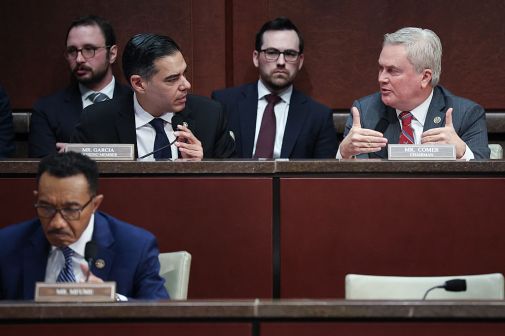FITARA highlights importance of IT in federal acquisitions – panel
The passage of the Federal Information Technology Acquisition Reform Act shows how important IT has become in all aspects of government acquisition, federal procurement leaders said Thursday.
“I’m not sure everybody gets it — that in every single program, in everything we buy, there’s a thread of IT,” Soraya Correa, chief procurement officer for the Department of Homeland Security, said during an American Council for Technology and Industry Advisory Council panel. “IT is one of those lines of business … that you can’t live without anymore.”
FITARA, passed by Congress last December, elevates the budgeting and acquisition authority of chief information officers for IT projects, among other things. It also consolidates the spending power of subagency CIOs to the agency- or department-level CIO.
Correa, whose department already began involving the chief information officer in acquisition decisions before FITARA passed, said the legislation hasn’t been to a shock to DHS. For others in the federal acquisition community, the law might mean working more closely with the CIO than ever before, she said.
“What I hope it does, though, is it helps us better understand the importance of the role of the CIO,” Correa said. “They are a part of everything that you do. So I hope that what it does is wakes up the contracting officer to partner a little better with the CIO, to say, ‘How do we better support you?'”
Mary Davie, assistant commissioner for integrated technology services at the General Services Administration, believes FITARA will emphasize the importance of IT and highlight ways to be more cost effective with technology acquisition.
“This is some extremely important legislation, because it’s continuing to highlight the fact that IT acquisition and IT are really important in government,” Davie told the audience. “The fact that the CIO is now, in legislation, mandated to be part of the acquisition process, the planning process, across their agencies, across bureaus, to be in sort of the approval chain of contracts, really does encourage a change in behavior and the way that we have to think about our planning and what the agency is doing across the country, across the world, and how we’re going to use IT.”
At GSA, Davie’s team is working with the Office of Management and Budget, and the Defense Department to develop enterprise licensing for federal software as part of FITARA, hoping to reduce the wasteful and redundant purchasing of licenses.
The goal, she said, is to figure out “what can we do with the agencies to identify specific kinds of software we want, put in place a single way to sort of go after that, procure it, and then establish an enterprise license agreement for different kinds of software for government.”
Some worry that FITARA may slow the already-stagnant acquisition process even more, Davie said, or that it might result in the offering of fewer contracts.
“Hopefully it won’t slow things down, but it will give us more of a strategic view of what we’re doing with IT and a better way to spend our money,” she said. “What I’ve seen across all the agencies that I’ve worked with over the years … is there’s some really good work out there that often doesn’t come to light across the agency at a high level, so I think this could be a good way to do that.”
Drawing from her experience at DHS, Correa said FITARA would lead to more effective collaboration within agencies and therefore better IT acquisition. Under FITARA, she said, procurement officials and CIOs will gain a new respect for one another, just as she did with DHS CIO Luke McCormack.
“We both get it: He needs me, and I need him,” Correa said. “And we understand that together, we can support a program much better.”






